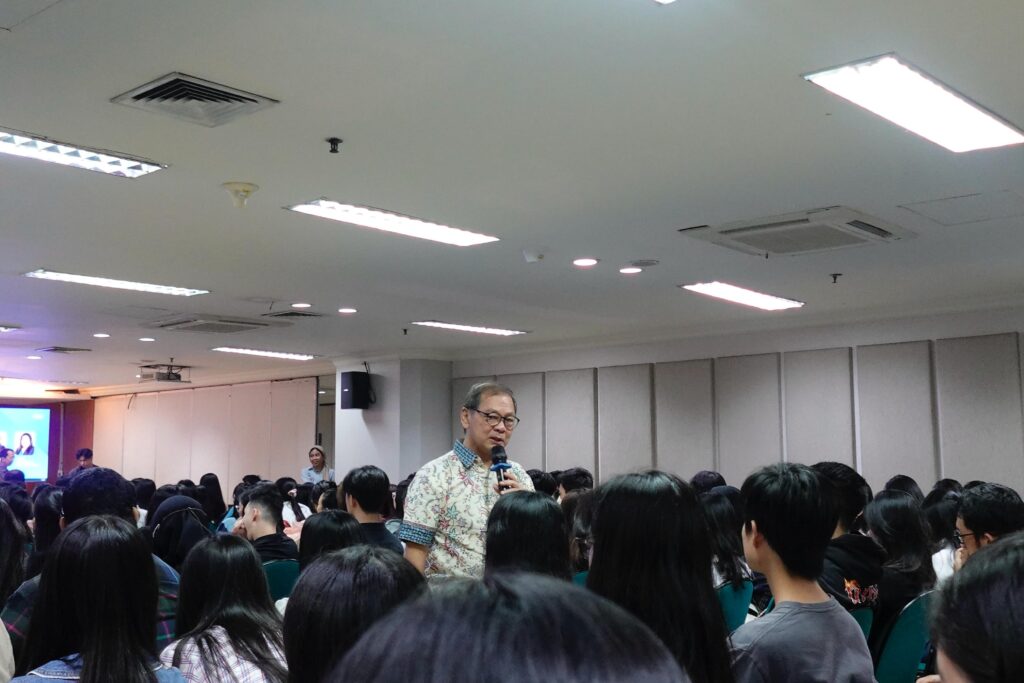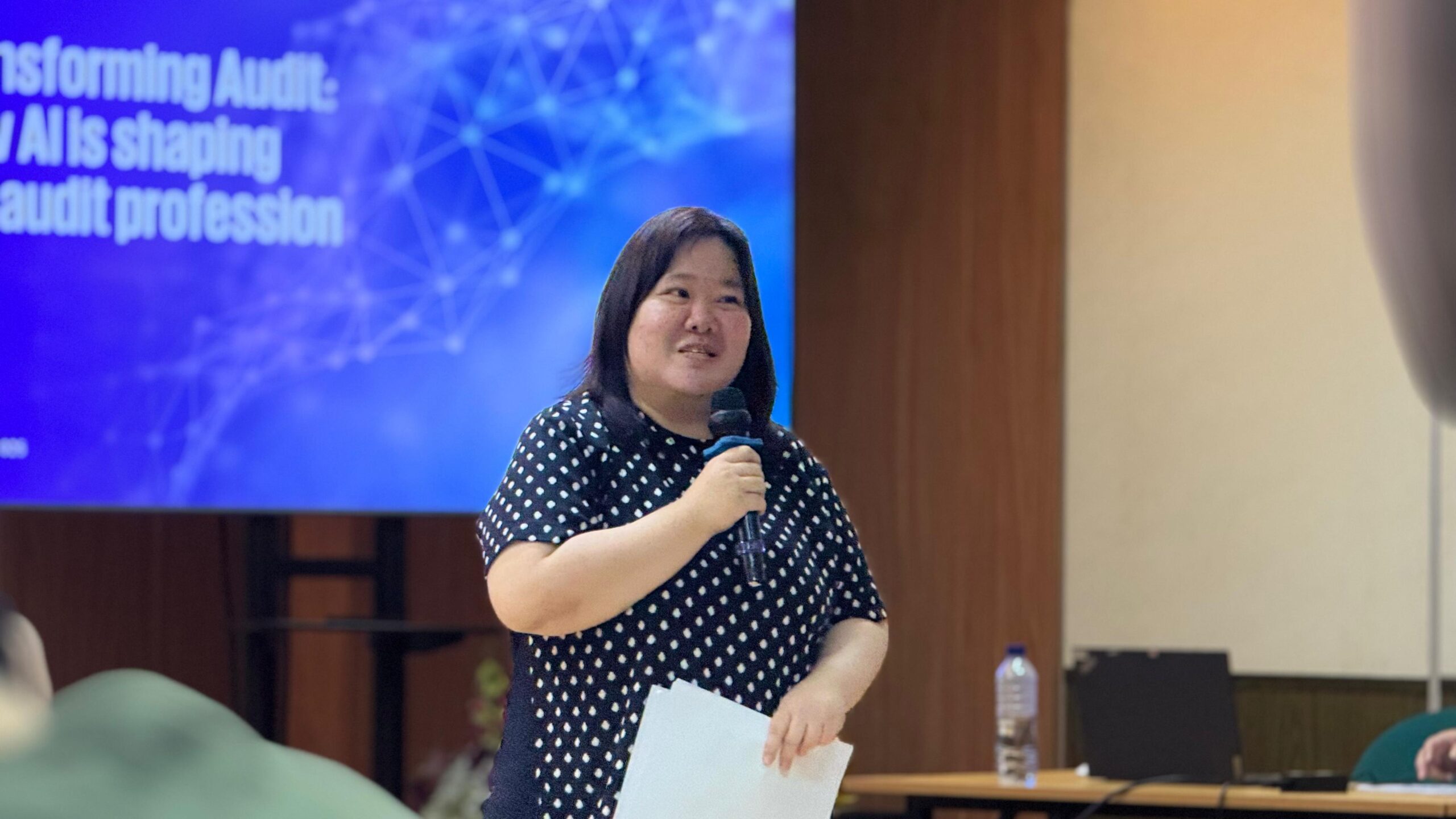Source: Business Accounting Study Program – AC
The rapid advancement of artificial intelligence (AI) technology has had a significant impact across various sectors, including the audit and assurance profession. Recognizing the importance of this development, the Undergraduate Business Accounting Study Program of the Faculty of Economics and Business, Tarumanagara University (FEB Untar), held a seminar titled “The Evolving Role of AI in Shaping the Future of Auditing” at Building A, Untar Campus II, on Thursday (June 5, 2025).
The event featured two inspiring speakers who are also alumni of Untar: Grace Prativi, Partner of Audit & Assurance at KPMG Indonesia, and Jeanne, Director of Audit & Assurance at KPMG Indonesia. Both speakers shared insights on how the audit profession is now required to adapt to technological advancements, including the rapidly evolving field of AI.
In their presentation, Grace and Jeanne emphasized the importance of auditors being able to balance audit procedures with the ever-changing dynamics of their clients’ business. “Audit is closely tied to the client’s business. Therefore, audit procedures must remain relevant and adaptable to change,” Grace stated.
On the same occasion, Jeanne also explained how AI—through technologies such as machine learning, deep learning, and generative AI—can process large volumes of data, detect trends and anomalies, and provide accurate analyses efficiently, enabling auditors to work more effectively.
AI is now becoming involved in nearly every stage of the audit process. In the planning stage, AI can be used to detect data fluctuations and client business trends more quickly and accurately. During the risk assessment stage, AI assists auditors in identifying area with high risk potential and material misstatements based on historical data and emerging patterns. In the audit strategy and planning stage, AI supports decision-making by suggesting more effective audit approaches. In the evidence-gathering stage, AI-based automation accelerates the identification of relevant documents and data. Finally, in the finalization stage, AI helps auditors analyze findings and compile audit reports based on comprehensive data analytics.
However, both speakers emphasized that no matter how advanced AI technology becomes, the role of the auditor cannot be entirely replaced by machines. This is because auditors possess professional skepticism, ethical judgment, and the ability to assess context—qualities that artificial intelligence cannot replicate. In other words, AI can serve as a powerful tool, but final decisions still require the human touch—one that understands values, integrity, and professional responsibility.
It was also conveyed that AI is no longer just a passing trend, but and inevitable reality that must be faced proactively. Based on the data presented, AI technology is projected to created around 170 million new jobs across various sectors by 2030. However, on the other hand, as many as 92 types of jobs are predicted to become obsolete, and 1,090 types of jobs—including the auditing profession—are expected to undergo significant transformation in terms of required skills and work approaches.
“AI may not be perfect at this stage, but we cannot ignore the speed of this technological revolution. We must strat learning and adapting now, because this technology will become an integral part of our professional lives in the future. What we once thought was impossible ma gradually become a part of our everyday reality,” Jeanne emphasized.

Head of the Undegraduate Business Accounting Study Program of FEB Untar delivering the opening remarks // Source: Untar Public Relations – CS
Head of the Undergraduate Business Accounting Study Program at FEB Untar, Hendro Lukman, S.E., M.M., CPMA, CA, CPA (Aust.), CSRS, ACPA, stated that this event is part of the program’s commitment to providing contextual and relevant learning experiences. “We strive to bridge students with the professional world so they are well-prepared to face future carees challenges, including the utilization of the latest technologies,” he said.
(CS/YS)


